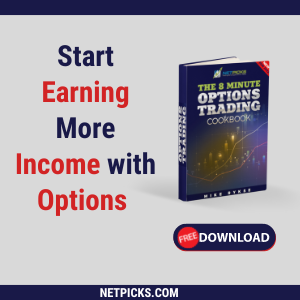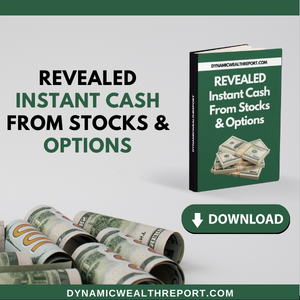Four Key Factors To Choosing An Online Brokerage
 We live in a day and age where everything is almost instant. The days of placing trades via telephone are almost over. So much so that your brokerage will often charge you a hefty chunk of cash to make one of these transactions.
We live in a day and age where everything is almost instant. The days of placing trades via telephone are almost over. So much so that your brokerage will often charge you a hefty chunk of cash to make one of these transactions.
Online brokerages have made such sharp advancements over the past 5 years that most all of them at a quick glance will look the same. Finding the small nuances in a brokerage can be the key to finding the one that is best for you.
There are some key elements you need to thoroughly go over prior to choosing the best online broker for you. Some of them you may not even be aware of. This is why I’ve compiled a list of some of the most important factors you need to bear in mind when choosing an online broker.
Some of these key elements will appeal more to the trading crowd, and some to the investing crowd. Regardless, there isn’t a factor in this article that doesn’t have some effect on both groups.
1. What does the brokerage charge?
For a buy and hold investor, there are probably a lot more pressing issues on your mind than commission costs. This is simply due to the fact that investors using this strategy rarely see commission costs affect their bottom line.
For a trader, commission costs can be everything. Online brokerages know this, and most will aim to appeal to those who bring them the most business. As you probably already know, brokerages make their profits off commissions. The more people trade, the more they make.
This is why as a trader you must take advantage of premium packages brokerages offer. For example, Questrade offers what they call their “Active Trader Program”, where commissions are cut quite drastically from their basic plan. Traders can receive over 30 percent in discounts on these plans, and can even have their advanced streaming packages refunded to them if they make enough trades in a month. If you’d like to check out more about this leading brokerage, check out Questrades website.
Another example would be Etrades commission structure, where traders making 30+ trades a quarter can knock their commissions down from $6.95 to $4.95. It may not seem like much, but over the course of a month, a trader may make over 100 trades. That works out to be about $2400 dollars in savings every year.
All in all, as an investor commission costs are probably not as high on your priority list, but they are still important. As a trader, considering you may make as many trades in one day than a buy and hold investor does in a year, it’s something that shouldn’t be overlooked. If you have the capital to meet the minimum balance ($10,000) I highly suggested you check out Interactive Brokers, who has the cheapest commissions for an established broker on the internet.
2. Research Tools
This is where we start to separate the wheat from the chaff, and truly define a broker’s value. As both an investor and a trader, the screening and research capabilities that an online brokerage offers can be paramount.
Sure, you can buy subscriptions to the many screening tools out there, and some traders may choose to do so just because there isn’t a brokerage that offers the complexity of a program they need. These tools, of course, won’t turn your losing portfolio into a market crushing dynamo, but they may increase your investment returns enough to make a noticeable difference over the long haul.
A prime example of an excellent research and trading tools is TD Ameritrades ThinkOrSwim platform. If you’re a Canadian looking for a great trading platform, be sure to check out Questrades IQ Edge.
3. What Other People Are Saying
This kind of goes without saying, but you need to do your research. These brokerages are in the business to make money. Therefore lots will talk the talk. You need to find the one that walks the walk.
You won’t find a brokerage that doesn’t claim that their platforms, customer service, and commissions are “the best out there”. The only real way to truly find out, other than taking a gamble and trying them out, is reviews.
That being said, there is a science to dissecting reviews. When humans pay for something they expect a certain product or service to be delivered. When this product or service is delivered, they tend to stick with the company and go about their day. Reviews are often a polarized system. Thus, the people who received above and beyond what they expected tend to write reviews, and the people who received service that was far below their expectations also write reviews. Naturally, people tend to love to complain but are slow to praise.
As much as a company would like to do so, they cannot provide the best service possible to every single client. It’s easy to look for a product or service and see a bunch of 1-star reviews from disgruntled customers and move on. Instead, dig a little deeper. Find out what these people didn’t like. Maybe you’re a trader who places strictly online trades, and the 1-star review was from a customer who didn’t like the fact they were charged $45 for an over-the-phone transaction.
4. Customer Service
Customer service is quite possibly where you will see the widest degree of separation in terms of reviews for online brokers. It seems like some people either have great experiences or absolutely dreadful ones.
One thing is for sure, you need quality customer service and the brokers know that. One prime example of this is Canada’s Questrade. I’ve been a client of Questrade for over 5 years now, and I wouldn’t recommend any other brokerage besides them. But I have to admit, at one point their customer service was absolutely abysmal. Wait times on their call in service were upwards of an hour. Emails took a week to get a reply. This is our money we are talking about here. If something goes wrong, such as a trade not going through or an incorrect purchase, the situation should be rectified as soon as possible. Especially if it is a mistake on their end.
Questrade has since probably realized these horrible reviews were simply costing them business. I rarely have to wait in the live chat queue if I have a question, and phone wait times have been drastically reduced.
Conclusion
There are many factors in choosing an online broker. It’s very important to sit down and compile a list of things that mean the most to you. A buy and hold investor may have completely different priorities than a high volume day trader.
If the trader uses third party research and screening tools, he may not be bothered by the fact his brokerage’s tools are sub par. Whereas the investor, who really doesn’t want to sink the money into extra tools, may look to a brokerage to provide these services just by having an account.
I hope you enjoyed this article. Although it may not be a complete guide to picking the right brokerage, it will guide you in the right direction. If you are looking to find an online brokerage, you can check out this article on the best brokerages in Canada and the USA.
Note: The author of this article is Dan Kent. Dan is a writer and co founder of Stocktrades.ca. A DIY investor for 7 years now, Dan has a combination of dividend, growth and real estate investments in to his portfolio and is looking to continually grow his net worth. This article was originally published on Modest Money.
Category: Trading Penny Stocks



